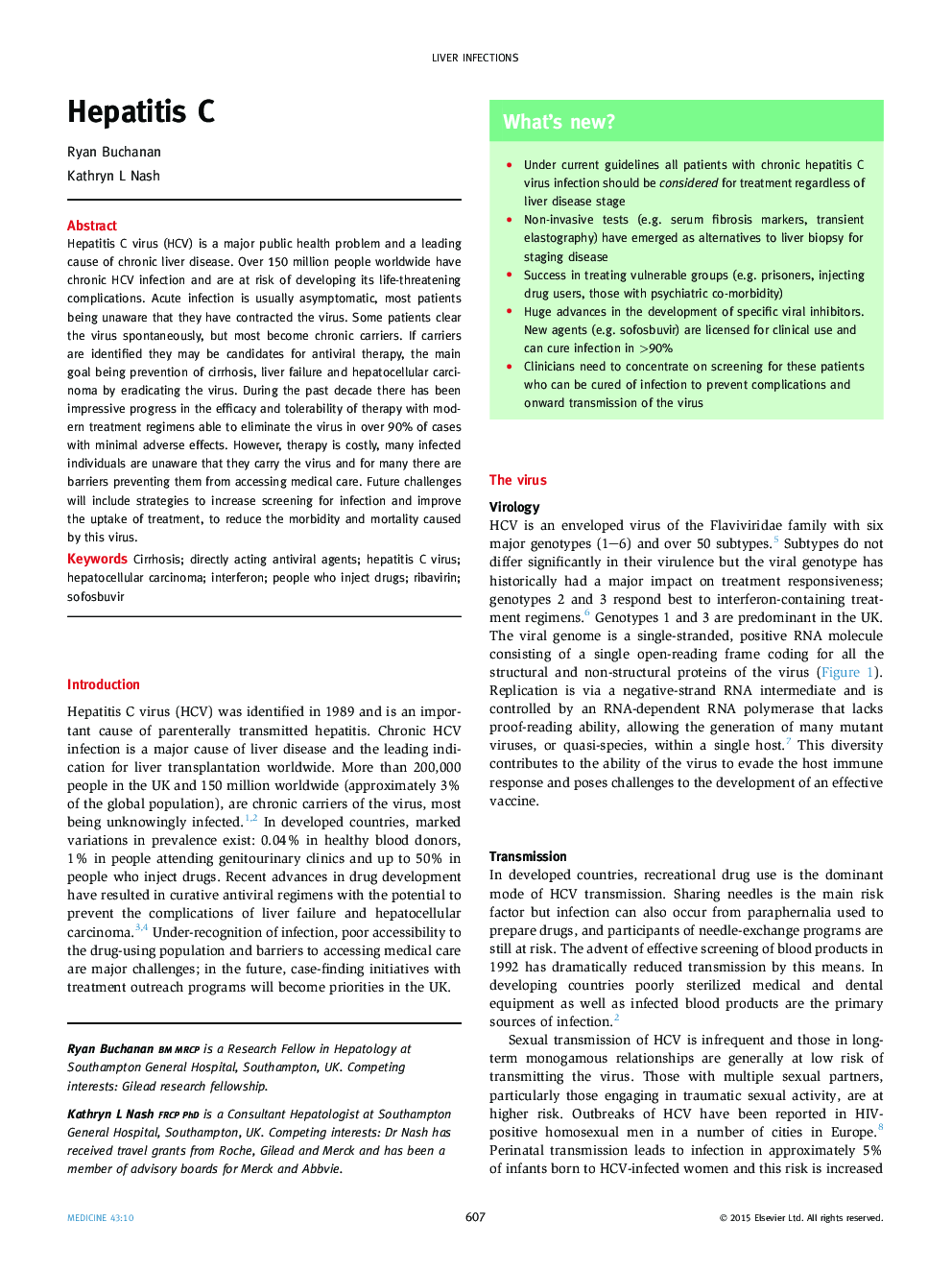| Article ID | Journal | Published Year | Pages | File Type |
|---|---|---|---|---|
| 3806386 | Medicine | 2015 | 6 Pages |
Hepatitis C virus (HCV) is a major public health problem and a leading cause of chronic liver disease. Over 150 million people worldwide have chronic HCV infection and are at risk of developing its life-threatening complications. Acute infection is usually asymptomatic, most patients being unaware that they have contracted the virus. Some patients clear the virus spontaneously, but most become chronic carriers. If carriers are identified they may be candidates for antiviral therapy, the main goal being prevention of cirrhosis, liver failure and hepatocellular carcinoma by eradicating the virus. During the past decade there has been impressive progress in the efficacy and tolerability of therapy with modern treatment regimens able to eliminate the virus in over 90% of cases with minimal adverse effects. However, therapy is costly, many infected individuals are unaware that they carry the virus and for many there are barriers preventing them from accessing medical care. Future challenges will include strategies to increase screening for infection and improve the uptake of treatment, to reduce the morbidity and mortality caused by this virus.
